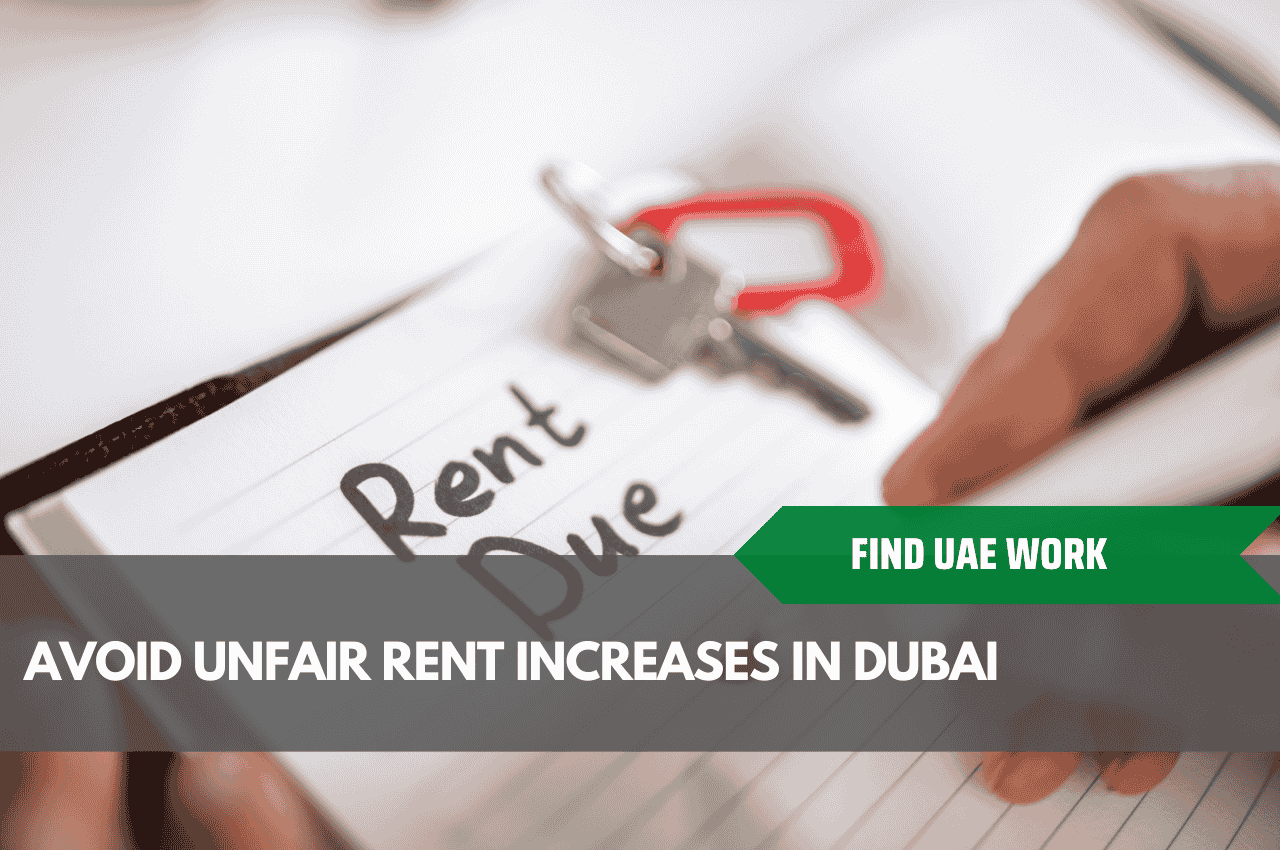Living in Dubai comes with its perks, but the rising cost of rent can sometimes be a challenge for tenants. If your landlord plans to increase your rent, it’s important to know your rights and understand the rules to avoid being overcharged. This guide will help you navigate rent increases in Dubai and protect your interests as a tenant.
Key Landlord-Tenant Rules in Dubai
Understanding the basics of landlord-tenant laws in Dubai can save you a lot of stress. Here are the most important rules you should know:
1. Maintenance Responsibilities
- Landlords are generally responsible for major maintenance and repairs to keep the property in good condition.
- Tenants often cover minor repairs, such as fixing small appliances or minor damages. The threshold for what tenants pay is usually specified in the lease agreement (e.g., up to AED 500 for apartments or AED 1,000 for villas).
2. Lease Renewal Rights
- Tenants have the right to renew their lease if they notify the landlord at least 90 days before the lease expires.
3. Eviction Rules
- A landlord cannot evict you without a valid reason. Evictions must follow the guidelines set out in Dubai’s Landlord and Tenant Law. Common reasons include:
- The property is being sold.
- The landlord or their immediate family plans to move in.
- Major renovations are required that make the property uninhabitable.
How Much Can Your Rent Increase?
Rent increases in Dubai are regulated to ensure fairness. Landlords must follow guidelines set by the Dubai Land Department (DLD).
Notice Period
Landlords must provide written notice at least 90 days before the lease expires if they intend to increase the rent. Without this notice, the rent cannot be increased, and the lease automatically renews at the current rate.
RERA Rental Index
The Real Estate Regulatory Agency (RERA) provides a rental index calculator to determine permissible rent increases based on:
- Your current rent amount.
- Average market rent for similar properties in your area.
Permissible Rent Increase Limits
Rent increases depend on how much your current rent is below the average market rate:
- Less than 10% below: No increase allowed.
- 11-20% below: Maximum 5% increase.
- 21-30% below: Maximum 10% increase.
- 31-40% below: Maximum 15% increase.
- More than 40% below: Maximum 20% increase.
You can check the RERA rental index online or through the DLD’s app to ensure any proposed increase complies with these limits.
What to Do If You Disagree with a Rent Increase
If you believe a rent increase is unjustified, you have options to challenge it:
1. File a Complaint
You can file a complaint with the DLD if you think the increase violates RERA guidelines. Provide evidence such as:
- Your current lease agreement.
- The proposed rent increase notice.
- The RERA rental index results for your property.
2. 90-Day Notice Violation
If your landlord fails to give you a 90-day notice, you can refuse the increase. In such cases, the lease renews automatically at the current rent amount.
3. Rent Disputes Settlement Center
If you and your landlord cannot reach an agreement, you can escalate the issue to the Rent Disputes Settlement Center. This process involves a fee of 3.5% of your annual rent. The center will review your case and issue a binding decision.
Tips for Tenants Facing Rent Increases
- Know Your Rights Familiarize yourself with Dubai’s rental laws to ensure you are not being overcharged.
- Don’t Accept Arbitrary Increases Landlords must justify rent increases based on the RERA rental index. Don’t agree to a hike without checking the guidelines.
- Document Everything Keep a record of all communications with your landlord, including notices and responses. This documentation will help if you need to file a complaint.
- Seek Legal Advice If you’re unsure about any legal aspects, consult a legal professional before signing or responding to a rent increase notice.
Common FAQs About Rent Increases in Dubai
1. Can a landlord increase my rent without notice?
No, landlords must provide a 90-day written notice before increasing rent. Without this notice, the lease renews at the current rate.
2. How do I check if a rent increase is justified?
Use the RERA rental index calculator to compare your current rent with the average market rate. Rent increases must follow the limits set by RERA.
3. What happens if I disagree with the rent increase?
You can file a complaint with the DLD or escalate the issue to the Rent Disputes Settlement Center if you and your landlord cannot agree.
4. Can I be evicted if I refuse a rent increase?
No, refusing an unjustified rent increase does not give your landlord the right to evict you. Evictions must comply with specific reasons outlined in the law.
5. What if my lease mentions different terms for rent increases?
The terms in your lease must still comply with RERA’s guidelines. Any conflicting terms may be invalid.
Final Thoughts
Navigating rent increases in Dubai doesn’t have to be stressful. By understanding your rights, checking the RERA rental index, and documenting all interactions with your landlord, you can ensure you’re treated fairly. If disputes arise, don’t hesitate to seek legal advice or file a complaint with the DLD. Staying informed is the key to protecting your rights and maintaining a positive rental experience in Dubai.
- UAE WORK-Urgent Hiring: Pakistani Return Mixer Heavy Drivers for Saudi Arabia - February 28, 2025
- UAE Work -Office Assistant Job in Dubai – Apply Now! - February 27, 2025
- UAE Work Haram Sharif Cleaner Jobs in Makkah – 15 Vacancies Available - February 26, 2025
Important Notice: Genuine employers will never ask for payment during the job application, interview, or hiring process. If someone requests payment for job applications, tests, or interviews, it’s likely a scam. Protect yourself by staying cautious and reporting any suspicious activity immediately. Stay vigilant and safeguard your career!

